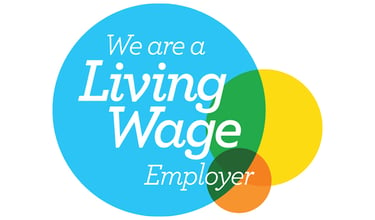Why can’t security guards stop shoplifters in the UK?
Why can’t security guards stop shoplifters in the UK? You may have seen a video, someone walks into a shop and sweeps shelves into bags and walks out while a guard looks on. It’s frustrating. It feels wrong. It looks like “doing nothing.”


Why can’t security guards stop shoplifters in the UK?
You may have seen a video, someone walks into a shop and sweeps shelves into bags and walk out while a guard looks on. It’s frustrating. It feels wrong. It looks like “doing nothing.”
It's because most guards aren’t apathetic, scared or lazy. They’re working within a tight box of law, policy and safety, and they’re juggling competing priorities in seconds.
So what powers do security guards actually have? In UK law, a licensed security officer has no more legal power than any member of the public. The SIA licence proves training and vetting; it doesn’t confer police powers and that matters.
A guard cannot:
Search a person without their consent (outside of specific settings like events where conditions of entry apply).
Use force just because they “think” someone might be stealing.
Detain someone without clear legal grounds, or for longer than necessary.
Punish, humiliate or “name and shame.”
What this means in practice
Timing matters. Concealment in-store isn’t automatically theft; there must be intent to permanently deprive. Many retailers require staff to wait until a suspect passes all points of payment. Jump too soon and you risk a false arrest claim.
Necessity matters. A citizen’s arrest must be necessary. If the person can be identified and reported, your necessity to detain weakens in law. That’s one reason evidence gathering is often chosen over a risky grab.
Reasonableness matters. “Reasonable force” is judged on the situation. Tackling someone near a busy entrance, on an escalator, or in wet weather could create a greater risk than the theft itself
“Just rugby tackle them” is a bad plan. Whilst the internet loves a have-a-go hero. The law doesn’t. Consider the risks:
Weapons and needles. One wrong move and you’re dealing with a stabbing or needle-stick injury.
Group dynamics. Confront one offender and two accomplices may jump you from the blind side.
Slips, trips and head injuries. If a suspect or a member of the public falls and hits a head, the consequences can be catastrophic.
Misidentification. Get it wrong, even in good faith, and you risk claims for assault and false imprisonment. One incident can ruin a career.
Why do so many retailers use a hands-off policy? You’ll have heard “we can’t touch them.” That’s not a legal rule; it’s a policy choice, and a rational one in many settings. Why?
Safety first. Retail is now a high-risk environment. Offenders do carry knives, syringes, and pepper spray. Violence and abuse against staff are at record levels. A £30 bottle of spirits isn’t worth a life-changing injury. It really isn't.
Duty of care and liability. Employers must protect the health and safety of staff and others. One heavy-handed stop that goes wrong can result in criminal charges, civil claims, reputational damage and higher insurance premiums.
So, can security guards stop shoplifters in the UK? Yes, but when it’s lawful, necessary and safe to do so. No, when doing so would be unlawful, disproportionate or likely to cause harm.



































